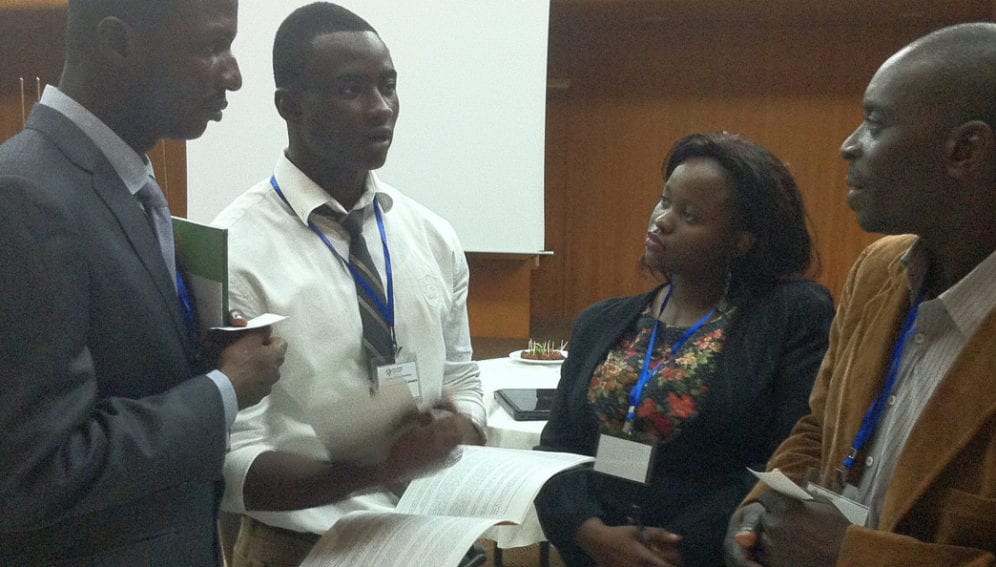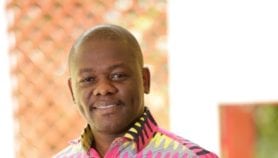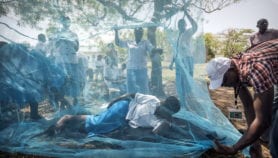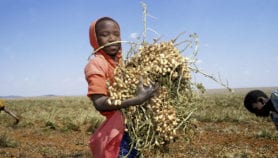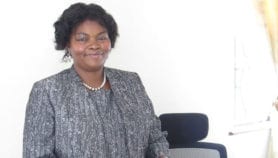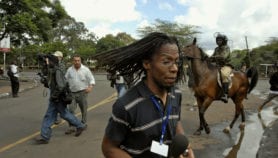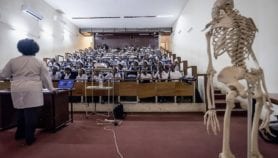By: Alberto Leny
Send to a friend
The details you provide on this page will not be used to send unsolicited email, and will not be sold to a 3rd party. See privacy policy.
[ARUSHA, TANZANIA] African scientists and researchers need to clearly communicate their findings to policymakers to help tackle the major development challenges facing the continent, a workshop has heard.
The workshop, which took place in Arusha, Tanzania, last week (4-7 August), was attended by researchers from Ethiopia, Ghana, Kenya, Malawi, Mali, Mozambique, Nigeria, Senegal, Tanzania and Uganda who have received grants from the United States Agency for International Development-funded Partnerships for Enhanced Engagement in Research (PEER) programme.
Ravi Murugesan, an associate of the UK-based International Network for the Availability of Scientific Publications, told the 39 principal investigators engaged in health, agriculture and technology projects across Africa to make research relevant for policymakers.
“[Researchers] must learn how to connect to policymakers by keeping the information simple.”
Ravi Murugesan, International Network for the Availability of Scientific Publications
“It is important to write for other important audiences other than [only peers], says Murugesan. “[Researchers] must learn how to connect to policymakers by keeping the information simple.”
Murugesan adds that researchers should be able to write policy briefs and disseminate them through face-to-face contacts, try to use at least one social media platform and to communicate their research. He also urges them to promote events their institutions organise to policymakers, and to maintain professional websites.
Gracian Chimwaza, the executive director of the South Africa-headquartered Information Training and Outreach Centre for Africa (ITOCA), emphasises the need for researchers to use the power of ICTs to reach a wider audience, including policymakers.
“ITOCA is already building capacity and working with researchers, science technology and innovation and education communities to address the digital challenges in Africa by helping identify the sources of information on evidence-based research,” Chimwaza said.
Fredirick Mashili, a lecturer at the Muhimbili University of Health and Allied Sciences in Tanzania, who did not attend the workshop, says scientists should determine whether their research addresses policy gaps, adds knowledge to existing policies or does both.
Mashili is creating an audio-visual public communication project — as part of a scholarship programme sponsored by the US-based Harvard University, where he is currently based — to increase awareness on cardiovascular health in major Tanzanian cities.
Idris Bugaje, the director-general of Nigeria’s National Research Institute for Chemical Technology, who is a PEER grantee, says policymakers alone should not be the focus of communication. “We need to move to the private sector [with] publications. In Nigeria, the policymakers have failed us,” Bugaje notes.
Another PEER grantee Shem Wandiga, a professor of chemistry and director of the Institute of Climate Change and Adaptation at the University of Nairobi in Kenya, adds that scientists should also engage junior officers who work for policymakers.
Wandiga explains that papers written by these officers are issued as policies, thus making them important stakeholders who should not be ignored.
This article has been produced by SciDev.Net's Sub-Saharan Africa desk.


